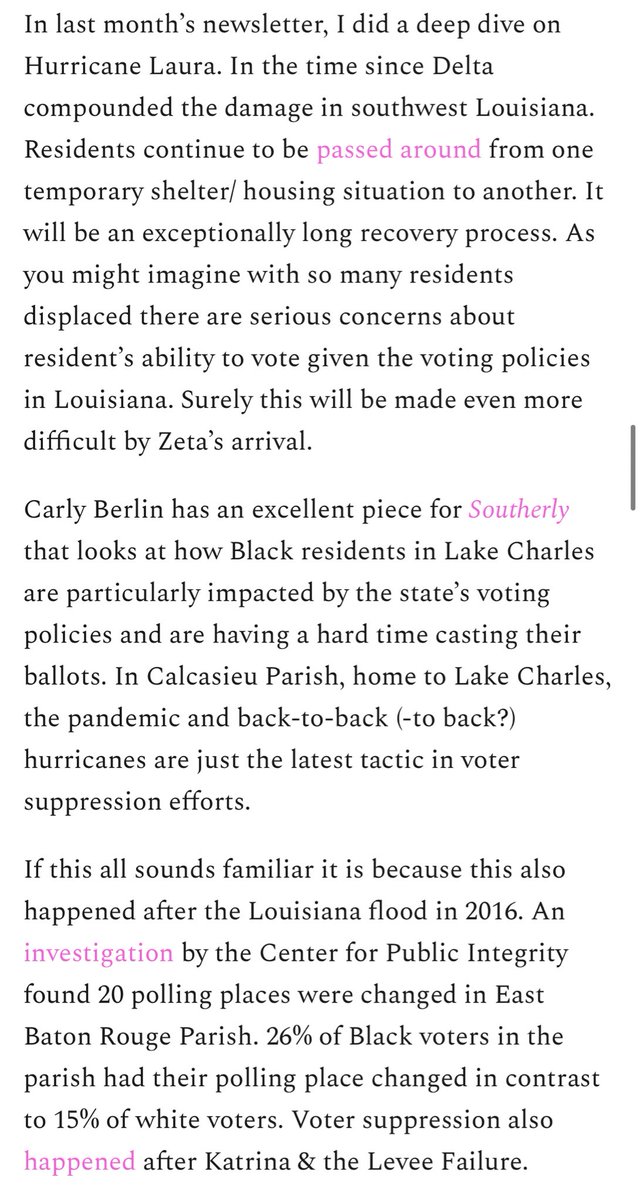
This is another disaster where the needs are so geographically widespread that my best advice on giving is to just pick a person/group/ organization and give them money.
https://twitter.com/SatansJacuzzi/status/1362097283110752258
My personal approach in a situation like this is to do the following:
1. Help anyone I know personally who needs help
2. Donate to any groups I've worked with before/ know they're effective
3. Local groups that serve marginalized people that haven't gotten many donations
1. Help anyone I know personally who needs help
2. Donate to any groups I've worked with before/ know they're effective
3. Local groups that serve marginalized people that haven't gotten many donations
I do usually recommend donating to groups that work on recovery rather than response. I actually feel differently in this situation specifically because of the pandemic. So this isn't a factor I'm considering right now.
You're basically looking to get cash as close to the people who need it. If you trust it, I favor a gofundme to a national organization) and to groups that haven't already "gone viral".
(This isn't to say there aren't reasons to donate to national groups. Just not my priority.)
(This isn't to say there aren't reasons to donate to national groups. Just not my priority.)
• • •
Missing some Tweet in this thread? You can try to
force a refresh




